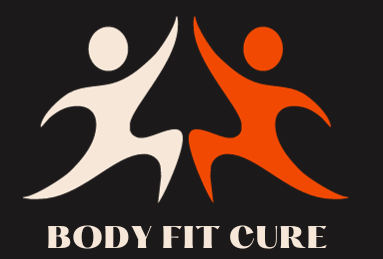Maintaining a balanced diet is essential for leading a healthy life. It can improve energy levels, boost immunity, and reduce the risk of chronic diseases. However, with so much conflicting information available, it can be challenging to know where to begin. In this ultimate guide, we will provide you with tips and tricks for healthy eating that will help you achieve a balanced diet and optimize your overall health.
Key Takeaways:
- A balanced diet is crucial for overall health and well-being.
- It can improve energy levels and boost immunity.
- A balanced diet helps reduce the risk of chronic diseases.
- Healthy eating tips and tricks can guide you towards better nutrition.
- Consult a registered dietitian or healthcare professional for personalized advice.
What is Healthy Eating?
Healthy eating is a dietary pattern that focuses on consuming a balanced and nutritious diet consisting of a variety of foods from different food groups. This approach to eating promotes overall well-being and supports optimal health. By incorporating whole grains, fruits, vegetables, lean proteins, healthy fats, and low-fat dairy products into your meals, you can ensure that your body receives the necessary nutrients for growth, energy, and disease prevention.
Avoiding processed and sugary foods is key to maintaining a healthy eating plan. These types of foods are often high in unhealthy fats, added sugars, sodium, and cholesterol, which can lead to weight gain, increased risk of chronic diseases, and poor mental health. By reducing the intake of saturated and trans fats, sodium, and cholesterol, you can improve digestion, promote weight loss, and enhance cognitive function.
Adopting healthy eating habits can have numerous benefits for your overall well-being. Not only can it help you maintain a healthy weight, but it can also lower your risk of chronic diseases such as heart disease, type 2 diabetes, and certain types of cancer. Additionally, a balanced and nutritious diet supports optimal digestion, boosts immunity, and improves mental health.
Remember, healthy eating is not about strict dietary restrictions or depriving yourself of your favorite foods. It’s about making smart choices and incorporating nutritious options into your meals. By focusing on a balanced diet and making sustainable changes to your eating habits, you can enjoy the benefits of healthy eating while still savoring delicious and satisfying meals.
Importance of Each Food Group
Each food group plays a crucial role in providing essential nutrients that are vital for overall health. By incorporating a variety of foods from different food groups into your diet, you can ensure that your body receives the necessary vitamins, minerals, and antioxidants it needs to thrive. Let’s explore the significance of each food group:
Fruits and Vegetables
Fruits and vegetables are not only delicious but also incredibly nutritious. They are low in calories but high in fiber, vitamins, minerals, and antioxidants. Incorporating a wide range of fruits and vegetables into your meals can help improve digestion, boost immune function, and reduce the risk of chronic diseases. Aim for at least 5 servings of fruits and vegetables per day to reap their numerous health benefits.
Whole Grains
Whole grains, such as quinoa, brown rice, and oats, are excellent sources of fiber, B vitamins, and iron. Unlike refined grains, whole grains retain the bran and germ, making them more nutrient-dense. Consuming whole grains can help regulate blood sugar levels, promote satiety, and support a healthy digestive system. Make sure to include whole grain products in your diet, such as whole wheat bread, whole grain pasta, and whole grain cereals.
Lean Proteins
Lean proteins, such as chicken, fish, tofu, and legumes, are essential for muscle growth, repair, and maintenance. They provide the necessary amino acids needed for a healthy body. Incorporating lean proteins into your meals can help control hunger, support weight management, and enhance overall fitness. Aim for a variety of lean protein sources to ensure you obtain all the essential amino acids your body needs.
Healthy Fats
Healthy fats, found in foods like avocados, nuts, seeds, and olive oil, are vital for optimal health. They provide essential fatty acids that the body cannot produce on its own. Consuming moderate amounts of healthy fats can support heart health, improve brain function, and reduce inflammation in the body. Incorporate these healthy fats into your diet to promote overall well-being.
Dairy Products
Dairy products, such as milk, yogurt, and cheese, are excellent sources of calcium and vitamin D, which are crucial for bone health. They also provide protein and other essential nutrients. Including low-fat dairy products in your diet can help prevent osteoporosis and ensure adequate calcium intake. If you have lactose intolerance or prefer non-dairy alternatives, there are plenty of plant-based options available.
| Food Group | Benefits |
|---|---|
| Fruits and Vegetables | High in fiber, vitamins, minerals, and antioxidants |
| Whole Grains | Excellent source of fiber, B vitamins, and iron |
| Lean Proteins | Essential for muscle growth, repair, and maintenance |
| Healthy Fats | Support heart health and brain function |
| Dairy Products | Important for bone health due to calcium and vitamin D content |
By incorporating foods from each of these food groups into your diet, you can ensure that your body receives a balanced array of nutrients necessary for optimal health. So, make a conscious effort to include fruits and vegetables, whole grains, lean proteins, healthy fats, and dairy products in your daily meals and enjoy the numerous benefits they offer.
What is a Balanced Diet?
A balanced diet is the cornerstone of a healthy lifestyle. It involves consuming a variety of nutrient-dense foods from each of the five food groups: fruits, vegetables, whole grains, lean proteins, and healthy fats. By incorporating these essential components into your daily meals, you can ensure that your body receives all the necessary nutrients for optimal health and weight loss.
To achieve a balanced diet, it is important to include at least five servings of fruits and vegetables each day. These colorful foods are rich in vitamins, minerals, and antioxidants that support overall well-being and protect against chronic diseases. Adding a variety of whole grains such as brown rice, quinoa, and whole wheat bread can provide dietary fiber, along with important nutrients like B vitamins and iron.
When it comes to lean proteins, options like chicken, fish, tofu, and legumes can help build and repair muscle tissues while providing essential amino acids. Incorporating healthy fats from sources like avocados, nuts, and olive oil can promote heart health and enhance the absorption of fat-soluble vitamins.
Lastly, including low-fat dairy products like milk, yogurt, and cheese can provide calcium and vitamin D, which are crucial for maintaining strong bones and teeth. However, for those who are lactose intolerant or prefer plant-based alternatives, there are a variety of non-dairy options available, such as almond milk or soy yogurt.
A balanced diet offers numerous health benefits, including weight management, improved digestion, reduced risk of chronic diseases, and enhanced overall well-being. By following a well-rounded eating plan that incorporates foods from all the major food groups, you can ensure that your body receives the essential nutrients it needs to thrive.
| Food Group | Examples |
|---|---|
| Fruits | Apples, bananas, oranges, berries |
| Vegetables | Broccoli, spinach, carrots, bell peppers |
| Whole Grains | Brown rice, quinoa, whole wheat bread |
| Lean Proteins | Chicken, fish, tofu, legumes |
| Healthy Fats | Avocados, nuts, olive oil |
| Low-fat Dairy | Milk, yogurt, cheese |
Benefits of a Balanced Diet

A balanced diet offers a wide range of health benefits, including weight management, improved digestion, and a reduced risk of chronic diseases such as heart disease, type 2 diabetes, and certain types of cancer.
Weight management is one of the key benefits of a balanced diet. When you consume a variety of nutrient-dense foods in appropriate portions, it helps maintain a healthy weight. This is essential for overall well-being and can prevent obesity-related health issues.
A balanced diet also promotes improved digestion. By including fiber-rich foods such as fruits, vegetables, and whole grains, you can support a healthy digestive system. Fiber adds bulk to the stool and aids in regular bowel movements, preventing constipation and promoting a healthy gut.
Moreover, following a balanced diet significantly reduces the risk of chronic diseases. By providing the body with essential nutrients, a balanced diet strengthens the immune system, reduces inflammation, and supports overall health. This can lower the risk of developing chronic conditions like heart disease, type 2 diabetes, and certain types of cancer.
Conclusion
Maintaining a balanced diet is crucial for achieving optimal health. By following the tips and tricks outlined in this ultimate guide, you can create a balanced diet that promotes weight loss, improves overall nutrition, and reduces the risk of chronic diseases.
Remember to consult a registered dietitian or healthcare professional for personalized advice. They can help you create a tailored plan that meets your specific dietary needs and goals. Additionally, utilize tools like the Healthi app to assist you on your journey to a healthier life. This app can provide personalized meal plans, track your food intake, and provide valuable insights and tips to help you stay on track.
In conclusion, prioritizing a balanced diet is essential for your overall health and well-being. By making conscious food choices, incorporating a variety of nutrient-dense foods from each food group, and monitoring portion sizes, you can achieve a balanced diet that nourishes your body and supports a healthy lifestyle.
FAQ
What is a balanced diet and why is it important for health?
A balanced diet refers to consuming a variety of nutrient-dense foods from each of the five food groups: fruits, vegetables, whole grains, lean proteins, and healthy fats. It is important for health because it provides the body with all the essential nutrients it needs for optimal health and weight management.
How can healthy eating improve my health?
Healthy eating can improve energy levels, boost immunity, reduce the risk of chronic diseases such as heart disease and type 2 diabetes, and promote better mental health and cognitive function.
What foods should I include in a healthy diet?
A healthy diet should include whole grains, fruits, vegetables, lean proteins, healthy fats, and low-fat dairy products. These foods provide essential nutrients that are important for overall health.
How can a balanced diet help with weight management?
A balanced diet can support weight management by providing the body with a variety of essential nutrients while keeping calorie intake in check. It includes foods that are high in fiber and low in calories, which can help control hunger and prevent overeating.
Can a balanced diet reduce the risk of chronic diseases?
Yes, a balanced diet can help reduce the risk of chronic diseases such as heart disease, type 2 diabetes, and certain types of cancer. By providing the body with the necessary nutrients, a balanced diet promotes overall health and wellness.




